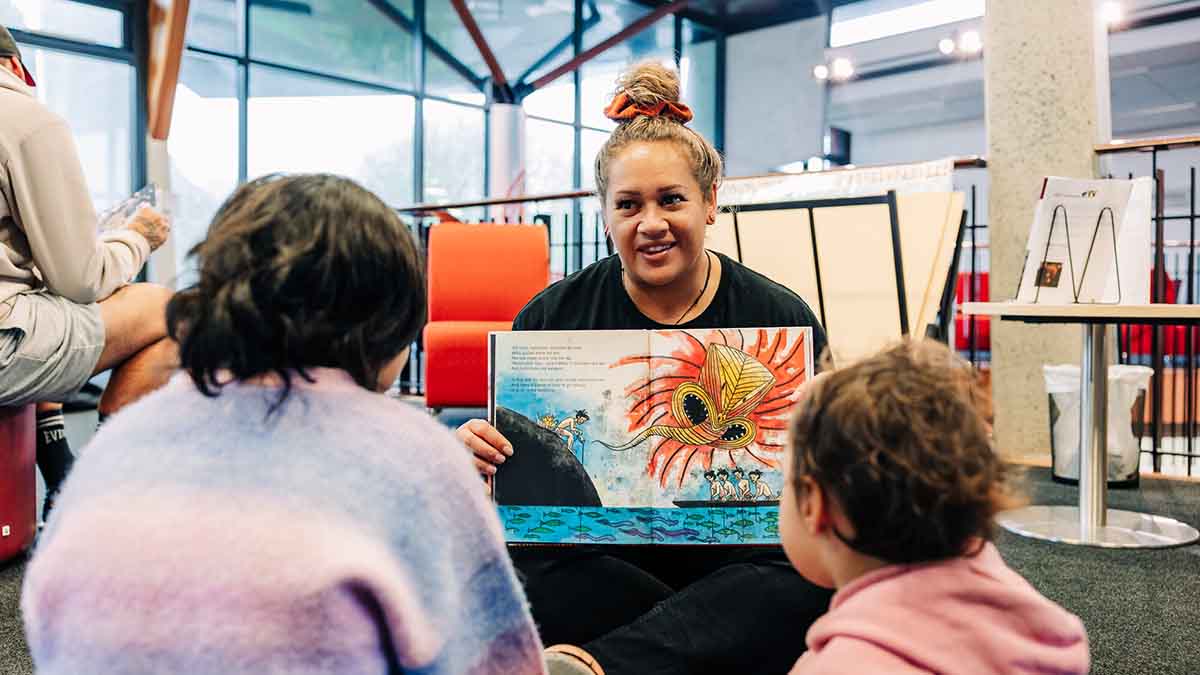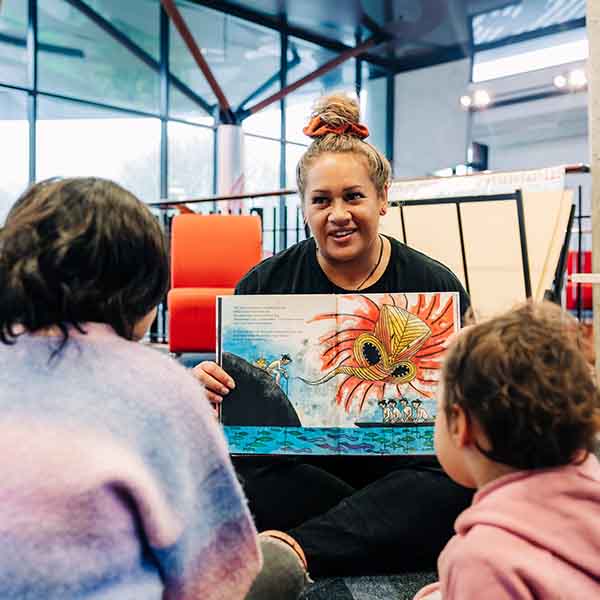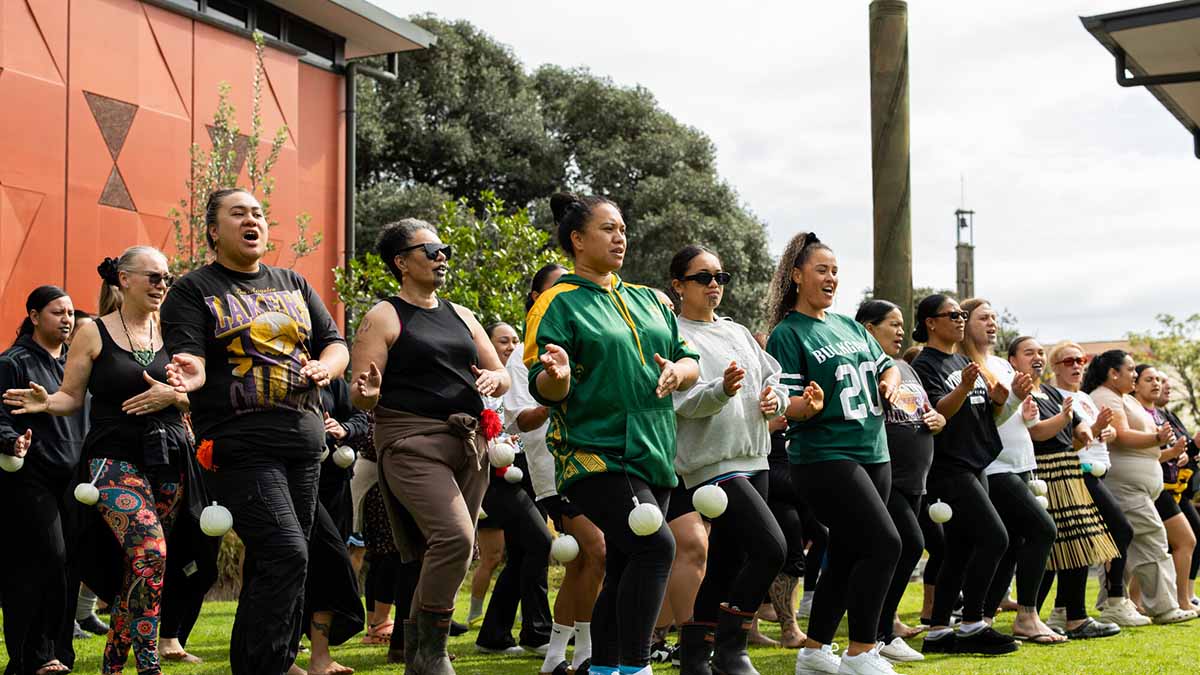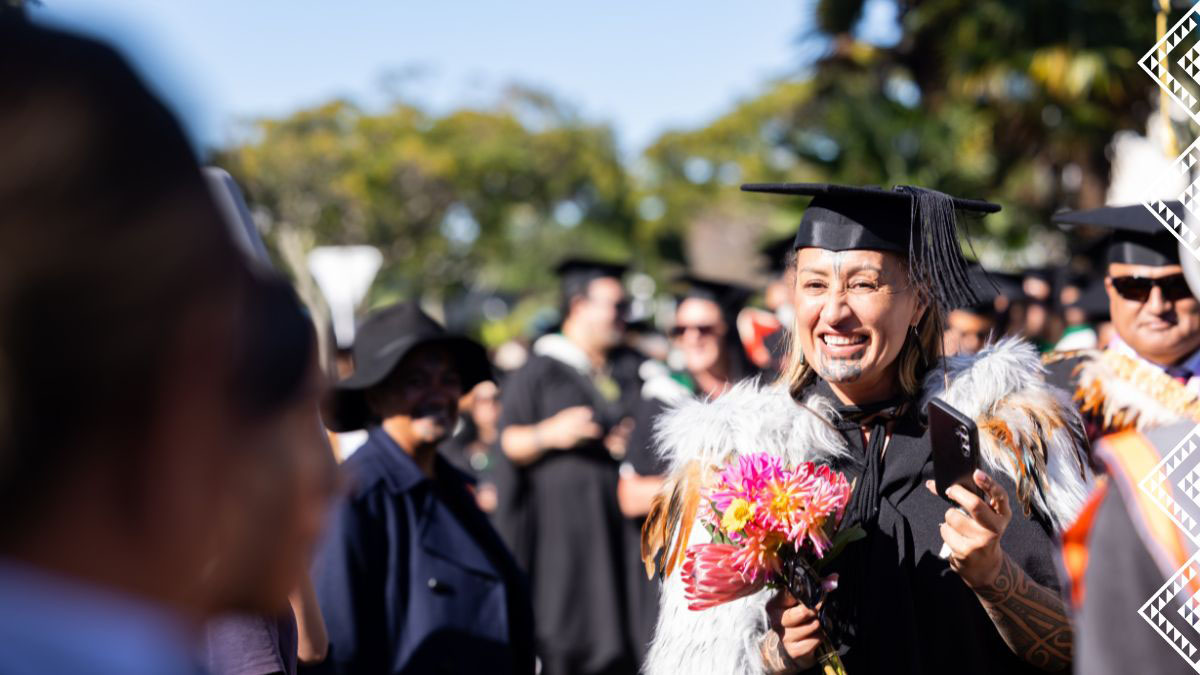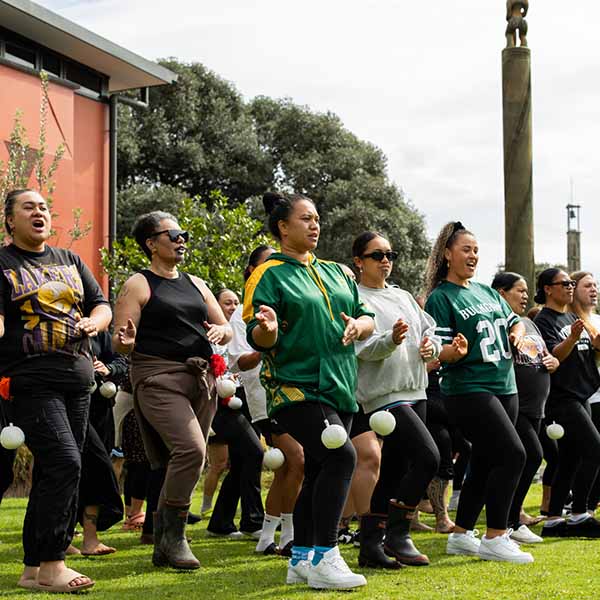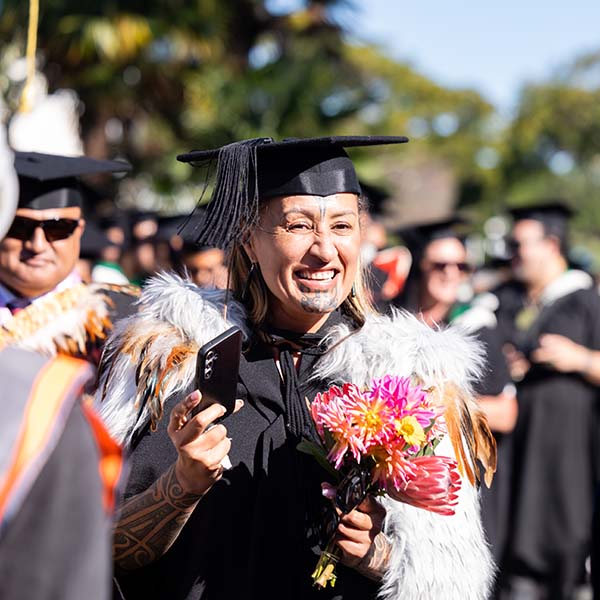A Guiding Pou for Uri o Te Whakatōhea
You will find Tracy at almost any kaupapa Māori event in Ōpōtiki, from reo wānanga and kapa haka to Toitū te Tiriti Hikoi. Tracy is a descendant of Te Whakatōhea and a well-known member of her community, spearheading a remarkable journey towards te reo Māori revival and normalisation as the Kaiarahi Rautaki Reo at Te Tawharau o Te Whakatōhea (iwi governance organisation).
Tracy's academic journey is nothing short of inspiring. She has earned a Bachelor of Māori Performing Arts, a Bachelor of Māori Education, and graduated with First Class Honours in her Masters of Māori Studies, all at Te Whare Wānanga o Awanuiārangi.
When asked about her work experience after receiving her tohū, Tracy explains, “With my Bachelor of Education, I was lucky to get a role working for Family Start, fostering language growth through conversation, play and reading within the whānau.
"In 2005, I was fortunate to teach under the supervision of Ani and Robin Mohi at Te Kura Mana Māori o Maraenui for several years. During this time, I was also teaching at Te Wānanga o Aotearoa, working with hapū revitalising te reo o te paepae, te kāuta, te kāinga.”
With her Bachelor of Māori Performing Arts, Tracy supports kapa haka in the community and her Masters of Māori Studies was a natural progression in her study journey.
“My knowledge and experience around Ngā mahi ā-rēhia, ā-Tanerore, is how I support kura and kapa. Pursuing my Master’s degree was the natural transition to expanding my knowledge in researching mōteatea, creating mōteatea, and understanding the use of language within mōteatea.
“All of my tohū support and contribute toward the wānanga I now facilitate within whānau, hapū, iwi.”
Tracy leads key initiatives aimed at embedding te reo Māori into the daily lives of whānau, including a monthly reo Māori breakfast and dinner, and the annual Tohekura Kura Reo (Language school wānanga). She explains, “We want te reo Māori heard naturally in all spaces, not only at the marae. Initiatives like Parakuihi Reo Māori and Kumete Kōrero are for all levels of reo learners who support the use of te reo Māori in a dining space. Learners immerse themselves in te reo over a shared meal and can use a dictionary to drop the occasional Māori kupu in an English sentence, known as being translingual.
“Tohekura began in 2016. It provides a safe environment for learners of all ages and abilities to experience te reo. It’s an opportunity for parents and children to learn alongside each other, and all kaiako are descendants of Te Whakatōhea. They learn te reo Māori in an immersive environment, where they walk their whenua and learn stories pertaining to the area. This year, registrations exceeded the maximum number of 200 in a little over a week, testament to its reputation for success.
“We also started Tohekura rangatahi this year. The learning is focused on activities where te reo and tikanga are threaded through in a bilingual mode - ko te reo Māori te mātāmua ko te reo Pākeha ka whaia.”
Her passion is further exemplified through several other reo Māori initiatives she champions, such as Tuku - an annual reo symposium, a drop-in akoako reo, and the creation of te reo Māori resources, including pukapuka (books), pūrākau (stories) and kēmu (games).
When asked what drives her kaupapa, Tracy’s response is typically modest. “It’s my love for my whānau, iwi, hāpori (community) and an aspiration to hear te reo Māori spoken everywhere that continues to inspire me.”
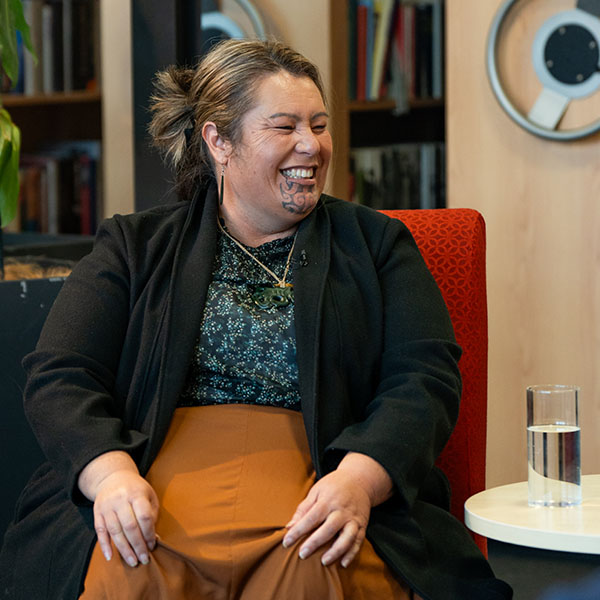
Tracy Gilmer
Qualifications: Masters of Māori Studies (First Class Honours), Bachelor of Māori Performing Arts, Bachelor of Māori Education
Iwi: Whakatōhea, Ngāti Awa, Tūhoe, Te Whānau a Apanui, Ngāti Rāhiri-Tumutumu
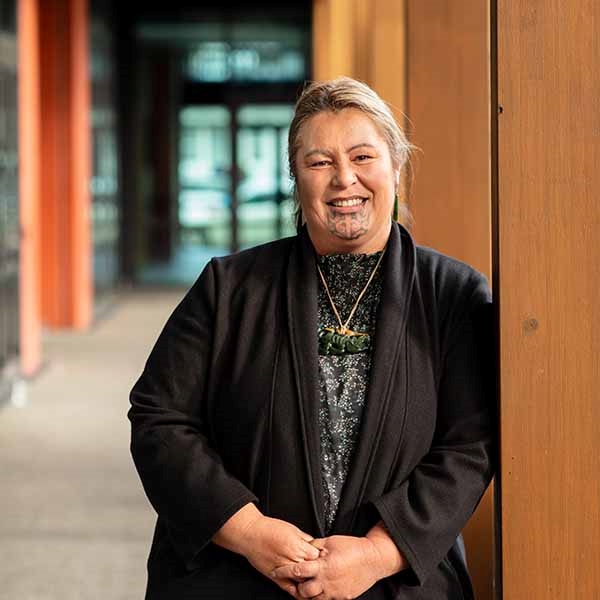
Kimihia he huarahi ako
What can you study?
